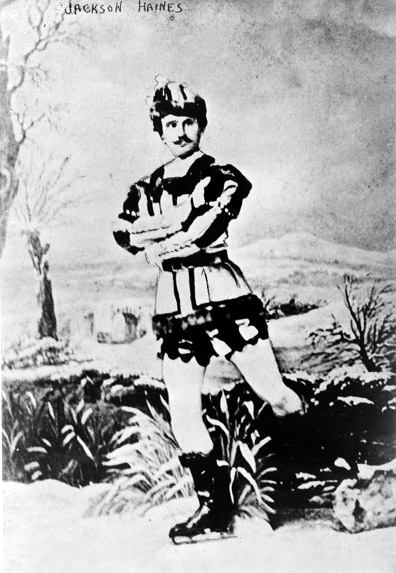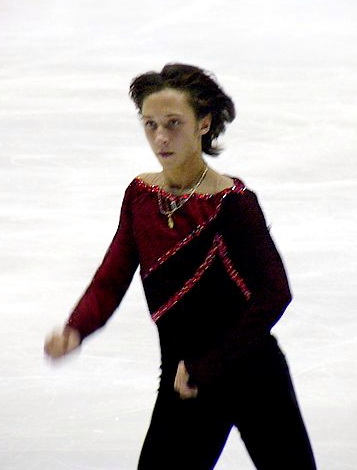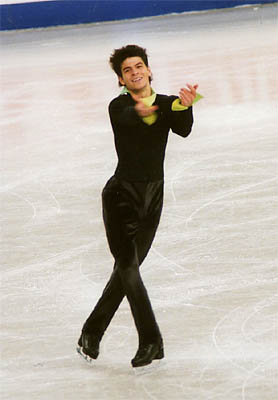|
2005 Cup Of Russia
The 2005 Cup of Russia was the fifth event of six in the 2005–06 ISU Grand Prix of Figure Skating, a senior-level international invitational competition series. It was held at the Ice Palace in Saint Petersburg on November 24–27. Medals were awarded in the disciplines of men's singles, ladies' singles, pair skating, and ice dancing. Skaters earned points toward qualifying for the 2005–06 Grand Prix Final. The compulsory dance was the Yankee Polka. Results Men Ladies Pairs Ice dancing References External links 2005 Cup of Russia {{2005–06 in figure skating Cup Of Russia, 2005 Cup of Russia The Rostelecom Cup (russian: Кубок Ростелекома), formerly the Cup of Russia (russian: Кубок России), is an international, senior-level figure skating competition held as part of the ISU Grand Prix of Figure Skating seri ... Rostelecom Cup ... [...More Info...] [...Related Items...] OR: [Wikipedia] [Google] [Baidu] |
ISU Grand Prix Of Figure Skating
The ISU Grand Prix of Figure Skating (known as ISU Champions Series from 1995 to 1997) is a series of senior international figure skating competitions organized by the International Skating Union. The invitational series was inaugurated in 1995, incorporating several previously existing events. Medals are awarded in the disciplines of men's singles, ladies' singles, pair skating, and ice dancing. The junior-level equivalent is the ISU Junior Grand Prix. Seasons Summary Competitions Currently, the sanctioned competitions for the Grand Prix are: * Skate America. First held in 1979 as Norton Skate, the event has been part of the series since 1995 and its location changes yearly. * Skate Canada International. First held in 1973, the event has been part of the series since 1995 and its location changes yearly. It was cancelled in 2020 due to the COVID-19 pandemic. * Grand Prix de France (Grand Prix International de Paris 1987–93, Trophée de France 1994–95, 2016, Troph ... [...More Info...] [...Related Items...] OR: [Wikipedia] [Google] [Baidu] |
Ice Dancing
Ice dance (sometimes referred to as ice dancing) is a discipline of figure skating that historically draws from ballroom dancing. It joined the World Figure Skating Championships in 1952, and became a Winter Olympic Games medal sport in 1976. According to the International Skating Union (ISU), the governing body of figure skating, an ice dance team consists of one woman and one man. Ice dance, like pair skating, has its roots in the "combined skating" developed in the 19th century by skating clubs and organizations and in recreational social skating. Couples and friends would skate waltzes, marches, and other social dances. The first steps in ice dance were similar to those used in ballroom dancing. In the late 1800s, American Jackson Haines, known as "the Father of Figure Skating", brought his style of skating, which included waltz steps and social dances, to Europe. By the end of the 19th century, waltzing competitions on the ice became popular throughout the world. By the ... [...More Info...] [...Related Items...] OR: [Wikipedia] [Google] [Baidu] |
Sergei Dobrin
Sergei Vladimirovich Dobrin (russian: Серге́й Владимирович Добрин, born 22 September 1986) is a Russian former competitive figure skater. He is the 2005 World Junior bronze medalist and a two-time ISU Junior Grand Prix Final silver medalist. On the senior level, he won bronze medals at the 2006 Trophée Éric Bompard, 2006 Finlandia Trophy, and two Russian Championships (2006 and 2007). Personal life Dobrin was born on 22 September 1986 in Lipetsk and has a sister, Maria, who is 18 years younger. He learned ballroom dancing from age 7 to 10. Career Dobrin started skating in 1991 and trained in Lipetsk until the age of 11. He then relocated to Moscow at the invitation of Zhanna Gromova. She would coach him until 2007. Dobrin debuted on the ISU Junior Grand Prix (JGP) series in September 2000. After winning silver medals in Ukraine and the Czech Republic, he qualified for the JGP Final in Ayr, Scotland, where he also took silver. After winning ... [...More Info...] [...Related Items...] OR: [Wikipedia] [Google] [Baidu] |
Ilia Klimkin
Ilia Sergeyevich Klimkin (russian: Илья Серге́евич Климкин, born 15 August 1980) is a Russian former competitive figure skater. He is the 2003 Grand Prix Final silver medalist, the 2004 European bronze medalist, the 1999 World Junior champion, and a three-time Russian national silver medalist. Personal life Klimkin was born on 15 August 1980 in Moscow, Russian SFSR, Soviet Union. Career Klimkin's grandmother introduced him to skating at the age of four because she felt it would be good for his health. He was coached by Igor Rusakov for thirteen years until Rusakov's sudden death in July 2003. He was then coached by Viktor Kudriavtsev. At the 1999 Nebelhorn Trophy, Klimkin became the first skater to land two different quadruple jumps in one program, which he did by landing a quad salchow and a quad toe loop in the free skate. Klimkin spins in both directions, and is also known for his cantilever. In the summer of 2003, Klimkin had a calf injur ... [...More Info...] [...Related Items...] OR: [Wikipedia] [Google] [Baidu] |
Yasuharu Nanri
is a Japanese former figure skater Figure skating is a sport in which individuals, pairs, or groups perform on figure skates on ice. It was the first winter sport to be included in the Olympic Games, when contested at the 1908 Olympics in London. The Olympic disciplines are me .... He is the 2007 and 2008 Japanese national bronze medalist. He competed at the 2008 World Championships, placing 19th with a personal best total score in international competition. Programs Competitive highlights References External links * Japanese male single skaters Sportspeople from Fukuoka (city) 1985 births Living people Competitors at the 2005 Winter Universiade Competitors at the 2009 Winter Universiade 21st-century Japanese people {{Japan-figure-skating-bio-stub ... [...More Info...] [...Related Items...] OR: [Wikipedia] [Google] [Baidu] |
Alban Préaubert
Alban Préaubert (born 20 September 1985) is a French former competitive figure skater. He won six ISU Grand Prix medals and five French national bronze medals (2006, 2008–11). Personal life Alban Préaubert was born on 20 September 1985 in Grenoble, France. His studies focused on economy and management. He graduated with an MBA from ESCP Europe in May 2010. He expressed interest in sports management. As of 2011, he works for an asset management company in Paris. He has a red belt in judo. Skating career Préaubert began skating in 1991. He was immediately attracted to skating after his father brought him to an ice rink to improve his balance for skiing. Early in his career, he trained with Elena Issatchenko, champion of the USSR in 1965 and 1966, at Charleville-Mezieres. He later moved to work with coach Annick Dumont. Préaubert won the French junior national title and a medal on the Junior Grand Prix circuit. He skated at both junior and senior events in 2004–05. ... [...More Info...] [...Related Items...] OR: [Wikipedia] [Google] [Baidu] |
Frédéric Dambier
Frédéric Dambier (born 26 December 1977) is a French figure skater. He is a four-time French national silver medalist and competed at two Olympic Games. He twice placed fourth at the European Figure Skating Championships. He is the first French skater to land a quadruple salchow in competition. Career Dambier started skating when he was about six or seven years old when a neighbor took him to the small ice rink of Joué les Tours. In practice, he landed his first triple jump, the salchow, at 14, and his first quad salchow when he was 19. He became the first French skater to perform the quad salchow in competition when he landed it at the 1999 Ondrej Nepela Memorial. Dambier was coached by Annick Gailhaguet, Pierre Trente, Diana Skotnicka and Li Ping, and his choreographers included Olga Leonovich, Shanti Rushpaul and Alexander Zhulin from 2003 to 2006. After retiring from competitive skating in August 2006, Dambier participated in numerous ice shows including Holiday on Ice, ... [...More Info...] [...Related Items...] OR: [Wikipedia] [Google] [Baidu] |
Stefan Lindemann
Stefan Lindemann (born 30 September 1980) is a German retired figure skater. He is the 2004 World bronze medalist, 2005 European bronze medalist, 2000 World Junior champion, and a seven-time (2000, 2002, 2004–2007, 2010) German national champion. Career Stefan Lindeman started skating at age 4 in Erfurt at the local skating club. At age 12 he wanted to play ice hockey, but his mother kept him in figure skating. His coach was Ilona Schindler. After finishing his school he was sponsored by the Bundeswehr (German Army). In 1995, at age 14, Lindemann made his first successful appearance in the international figure skating scene by placing fourth at the junior world championships. In 1996 he placed 12th at the German nationals. He placed fourth in the same event in 1997, second in 1999, and first in 2000, becoming the German champion. In 2000, he won the World Junior Championships. This was the first such title for the German Figure Skating Organisation, Deutsche Eislauf-Unio ... [...More Info...] [...Related Items...] OR: [Wikipedia] [Google] [Baidu] |
Johnny Weir
John Garvin Weir (; born July 2, 1984) is an American figure skater and television commentator. He is a two-time Olympian (representing the United States in the 2006 and 2010 Winter Olympics, respectively), the 2008 World bronze medalist, a two-time Grand Prix Final bronze medalist, the 2001 World Junior Champion, and a three-time U.S. National champion (2004–2006). He began skating at the age of 12, two or three times older than when most elite skaters start training. He was the youngest U.S. National champion since 1991, in 2004 the first skater to win U.S. Nationals three times in a row since Brian Boitano in the late 1980s, and the first American to win Cup of Russia in 2007. Weir had a classical skating style and was known for being "a very lyrical skater" and "an entertaining artisan". His costume choices and outspokenness caused conflicts with U.S. Figure Skating, the governing body of the sport in the U.S., throughout his skating career. Weir retired from com ... [...More Info...] [...Related Items...] OR: [Wikipedia] [Google] [Baidu] |
Stéphane Lambiel
Stéphane Lambiel (born 2 April 1985) is a Swiss former competitive figure skater who now works as a coach and choreographer. He is a two-time (2005–2006) World champion, the 2006 Olympic silver medalist, a two-time (2005, 2007) Grand Prix Final champion, and a nine-time (2001–08, 2010) Swiss national champion. Lambiel is known for his spins and is credited with popularizing some spin positions. Personal life Lambiel was born in Martigny, Valais, and grew up in Saxon, Switzerland. His mother is originally from Lisbon, Portugal, and his father is from Isérables, Switzerland. He has a sister, Silvia (born in 1982), and a brother, Christophe (born in 1989). His parents divorced in 1999. Lambiel lives in Lausanne, Switzerland and received his "maturité" ( matura) in biology and chemistry in June 2004. A native speaker of French, Lambiel also speaks Portuguese, High German (not Swiss German), and English and is learning Italian. Competitive career Unlike most ... [...More Info...] [...Related Items...] OR: [Wikipedia] [Google] [Baidu] |
Free Skating
The free skating segment of figure skating, also called the free skate and the long program, is the second of two segments of competitions, skated after the short program. Its duration, across all disciplines, is four minutes for senior skaters and teams, and three and one-half minutes for junior skaters and teams. Vocal music with lyrics is allowed for all disciplines since the 2014—2015 season. The free skating program, across all disciplines, must be well-balanced and include certain elements described and published by the International Skating Union (ISU). Overview The free skating program, also called the free skate or long program, along with the short program, is a segment of single skating, pair skating, and synchronized skating in international competitions and events for both junior and senior-level skaters.S&P/ID 2022, p. 9 The free skating program is skated after the short program. Its duration, across all disciplines, is four minutes for senior skaters and ... [...More Info...] [...Related Items...] OR: [Wikipedia] [Google] [Baidu] |





